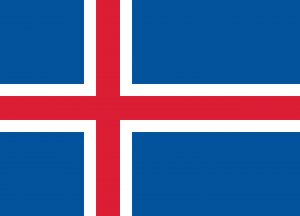Language/Icelandic/Vocabulary/Daily-Routine
| ◀️ Irregular Verbs — Previous Lesson | Next Lesson — Hobbies and Interests ▶️ |
Introduction[edit | edit source]
In this lesson, we will explore vocabulary related to everyday activities and daily routines in Icelandic. Learning this vocabulary will enable you to talk about your daily life, such as getting dressed, eating, and going to work. By understanding and using these words and phrases, you will be able to communicate more effectively in Icelandic and have meaningful conversations with native speakers. This lesson is part of the "Complete 0 to A1 Icelandic Course," designed to take you from a beginner to an A1 level in the language. Let's get started!
Vocabulary[edit | edit source]
Here are some essential words and phrases related to daily routines and everyday activities in Icelandic:
Getting Up[edit | edit source]
Let's start with vocabulary related to getting up in the morning and starting your day:
| Icelandic | Pronunciation | English Translation |
|---|---|---|
| Vakna | [ˈvaːkna] | to wake up |
| Komast út úr rúminu | [ˈkɔm.ast uːt uːr ˈruːmɪnʏ] | to get out of bed |
| Brúnka | [ˈpruːŋka] | to yawn |
| Horfa á klukkuna | [ˈhɔr.va auː ˈklʏkʏna] | to look at the clock |
| Risa úr rúminu | [ˈrɪː.sa uːr ˈruːmɪnʏ] | to rise from bed |
| Skella sér í sturtuna | [ˈskɛl.la saur iː ˈstʏr̥.tʏ.na] | to take a shower |
| Þvo andlit | [ˈθvɔ ˈant.lɪt] | to wash your face |
| Bera tannbursta | [ˈpɛ.ra ˈtan.bʏr̥s.ta] | to brush your teeth |
| Klæðast | [ˈkl̥aiːðast] | to get dressed |
| Borða morgunmatur | [ˈpɔr.ða ˈmɔr.ɣʏnˌmaː.tʏr] | to eat breakfast |
Daily Activities[edit | edit source]
Now, let's explore vocabulary related to common daily activities:
| Icelandic | Pronunciation | English Translation |
|---|---|---|
| Fara á vinnum | [ˈfaː.ra auː ˈvɪnː.ʏm] | to go to work |
| Leggja af stað í skólanum | [ˈlɛk.ja aːv staːð iː ˈskouːl.anʏm] | to leave for school |
| Hitta vináttu | [ˈhɪtːa ˈvɪ.nauːtʏ] | to meet a friend |
| Vinna heimilisverk | [ˈvɪn.na ˈhɛi.mɪ.lɪs.vɛrk] | to do household chores |
| Horfa á sjónvarpið | [ˈhɔr.va auː ˈsjoun.var.pɪð] | to watch TV |
| Lesa bók | [ˈlɛː.sa poupː] | to read a book |
| Hlusta á tónlist | [ˈl̥ɵs.ta auː ˈtoun.lɪst] | to listen to music |
| Elda mat | [ˈɛl.ta mat] | to cook food |
| Þvo fat | [ˈθvɔ fat] | to do laundry |
| Leggja sig á svefni | [ˈlɛk.ja sɪɣ auː ˈsvɛf.nɪ] | to go to sleep |
Meals and Eating[edit | edit source]
Next, let's learn vocabulary related to meals and eating:
| Icelandic | Pronunciation | English Translation |
|---|---|---|
| Morgunmatur | [ˈmɔr.ɣʏnˌmaː.tʏr] | breakfast |
| Hádegismatur | [ˈhauː.tɛ.kɪs.ˌmaː.tʏr] | lunch |
| Náttverður | [ˈnaut.vɛr̥ðʏr] | dinner |
| Átta sig á kaffinu | [ˈauːt.a sɪɣ auː ˈkafː.ɪ.nʏ] | to have a coffee break |
| Borða mat | [ˈpɔr.ða mat] | to eat a meal |
| Drepa sér í veitingastað | [ˈtrɛp.a saur iː ˈvɛiː.tɪŋ.kastauːð] | to eat out at a restaurant |
| Kaupa matvörur | [ˈkøyː.pa ˈmat.ˌvœrʏr] | to buy groceries |
Cultural Insight[edit | edit source]
In Icelandic culture, daily routines are influenced by the country's unique geography and climate. The long winters and short summers shape the lifestyle and activities of the Icelandic people. For example, during the winter months, Icelanders often spend their evenings indoors, engaging in activities such as reading, listening to music, and watching TV. On the other hand, the summer months bring the Midnight Sun, where the sun doesn't set for several weeks. This phenomenon allows Icelanders to enjoy extended daylight hours and participate in outdoor activities like hiking, camping, and fishing.
Icelanders also prioritize self-care and personal well-being. Taking time for daily activities such as showering, brushing teeth, and getting dressed is seen as essential for starting the day off right. Additionally, Icelanders value family meals and enjoy gathering around the table for breakfast, lunch, and dinner. Sharing meals together provides an opportunity for bonding and socializing, which is highly valued in Icelandic culture.
Practice Exercise[edit | edit source]
Now it's time to practice using the vocabulary we've learned. Complete the following exercise by translating the given sentences into Icelandic. Solutions and explanations will be provided afterward.
1. I wake up at 7:00 AM. 2. She brushes her teeth before going to bed. 3. We go to work every weekday. 4. He reads a book in the evening. 5. They eat dinner together as a family.
Exercise Solutions[edit | edit source]
1. Ég vakna klukkan 7:00. 2. Hún berr tannburstað áður en hún fer að sofa. 3. Við förum á vinnum á hverjum virkisdag. 4. Hann les bókina um kvöldið. 5. Þau borða náttverð saman sem fjölskylda.
Conclusion[edit | edit source]
Congratulations! You have now learned vocabulary related to everyday activities and daily routines in Icelandic. By practicing these words and phrases, you will be able to talk about your daily life and engage in conversations with native Icelandic speakers. Remember to incorporate these words into your daily routine to reinforce your learning. Keep up the good work and continue exploring the Icelandic language and culture!
Sources[edit | edit source]
Other Lessons[edit | edit source]
- traveling or buying
- Modes of Transportation
- Basic Greetings
- Numbers 1 20
- Days of the Week
- Restaurant
- Colors
- Information about origins
- Clothes
- Basic Icelandic Phrases
| ◀️ Irregular Verbs — Previous Lesson | Next Lesson — Hobbies and Interests ▶️ |

